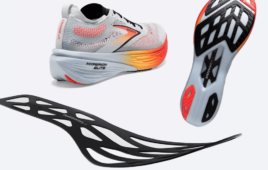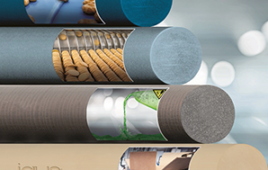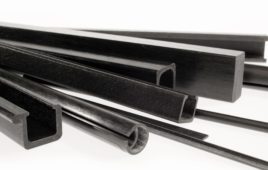Synthetic materials are convenient in many respects, but they have one disadvantage: they are permeable to gases. In order to make plastic more impervious, Ruhr-Universität engineers apply wafer-thin layers on surfaces.
READ: DARPA Seeks New Materials for Energy Transduction
This would not only increase the shelf life of food in plastic packaging, but would also prevent the migration of substances from the plastic into the food. “RUBIN”, the science magazine of RUB reports about this research.
Substances Escape from Plastics of All Types
Light and break-proof synthetic materials are everywhere. Currently, supplying baby food in plastic containers is being debated. However, people are still concerned that harmful substances may seep into the food.
“A synthetic material that does not leak any substances does not exist,” says Prof Dr Peter Awakowicz, Head of the Institute for Electrical Engineering and Plasma Technology. “Using our coating, the volume of those substances could be reduced to a mere one per cent of the current volume.”
Coating Plant for PET Bottles Already Available
Together with his team, Awakowicz researches how an object can be coated with a specific synthetic material using plasmas. The results are affected by many parameters, e.g. plasma density, oxygen content, and the intensity of ion bombardment.
In collaboration with partners from the industry, the RUB engineers have optimised the process to a considerable extent for PET bottles. The research consortium also owns a coating plant.
A Barrier Layer from Glass: Relevant Not Just for Food Packaging
The applied barrier layer that makes plastic more impervious is made from wafer-thin glass. The RUB researchers do not apply it directly to the plastic, however. This is because they have found out that the oxygenic plasma process necessary for this purpose destroys the synthetic surface.
Therefore, Awakowicz’ team initially coats the surface with an oxygen-free protective layer, followed by the glass layer. The engineers also demonstrated that the protective layer transforms the glass layer following application, thus making the plastic even more impervious.
The coating process is relevant not only for food packaging. Artificial kidneys and organic light-emitting diodes, too, are made from synthetic materials and could benefit from the process.
Filed Under: Materials • advanced




